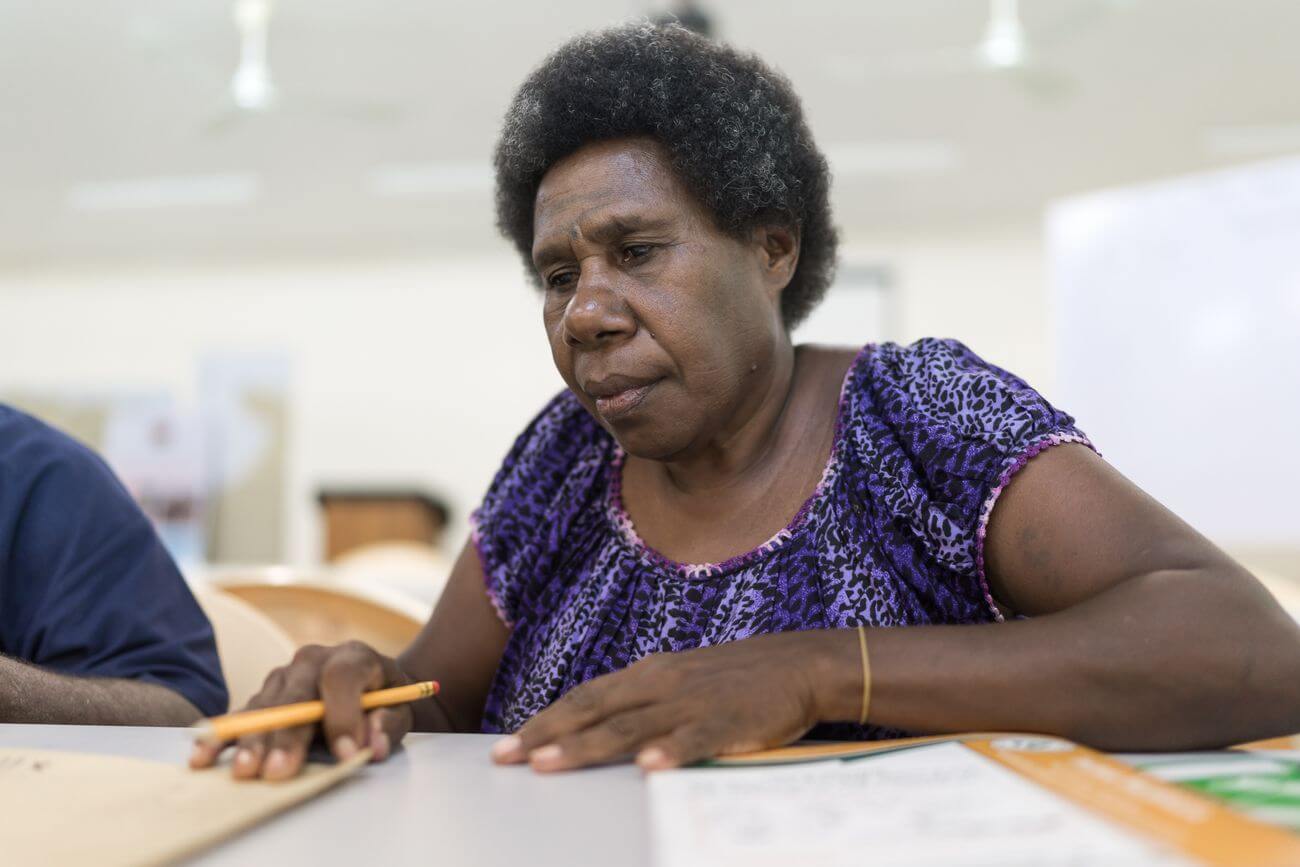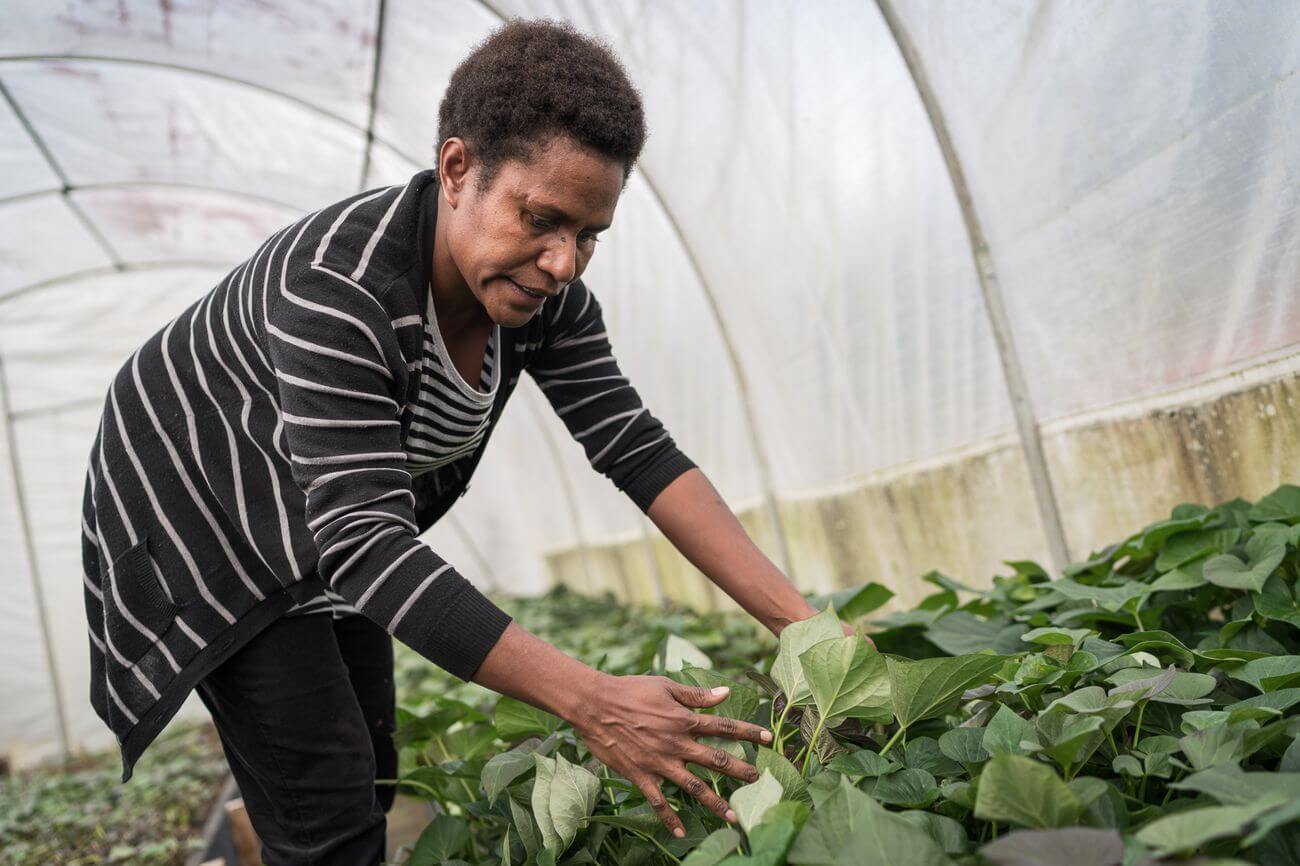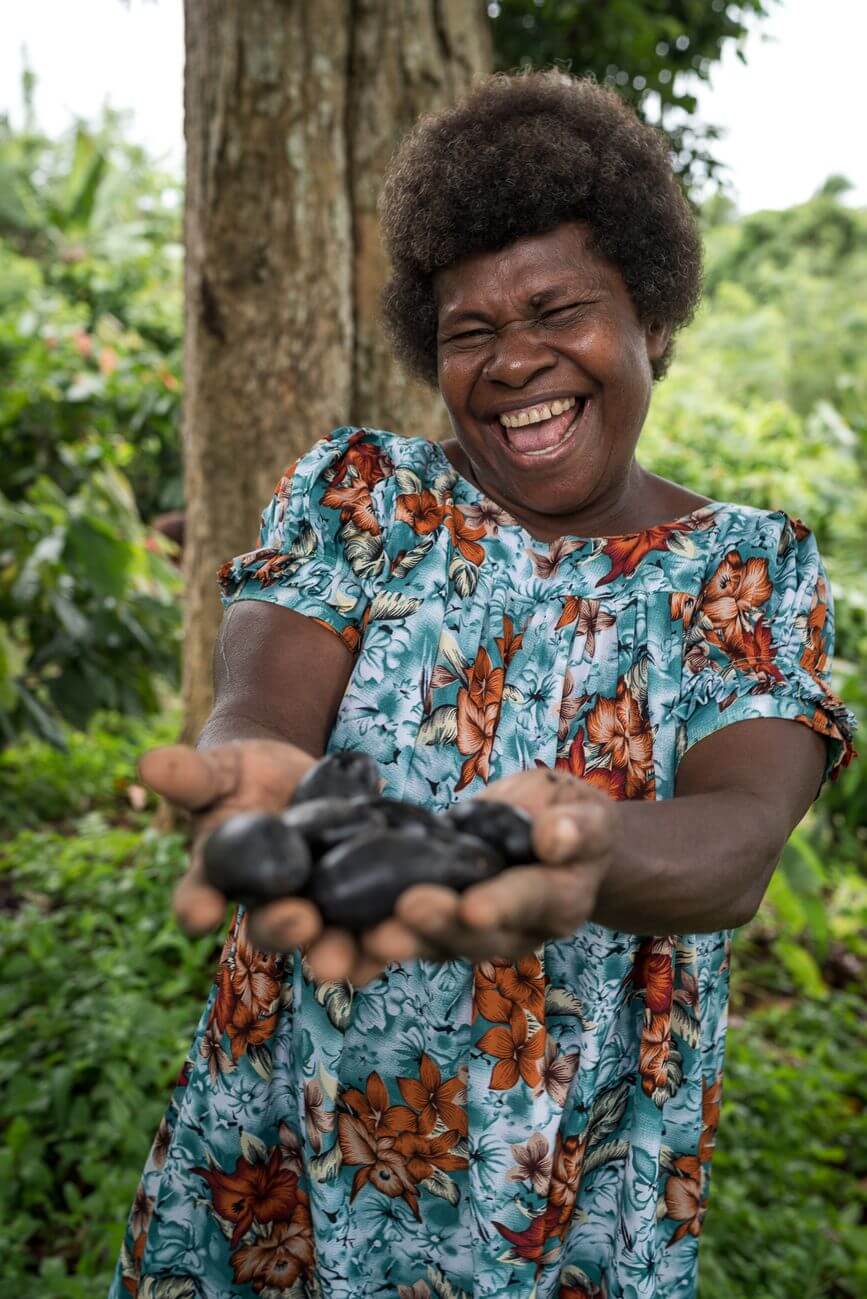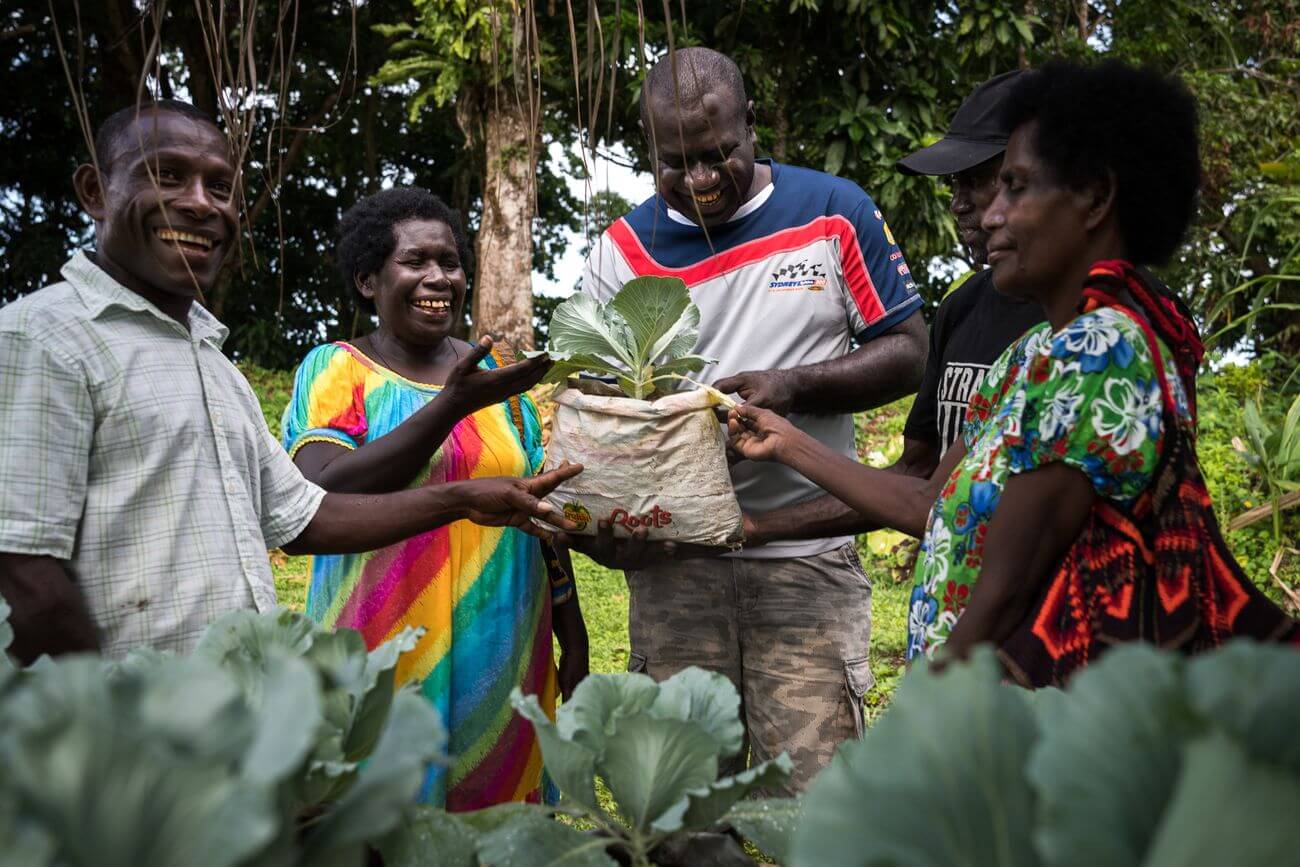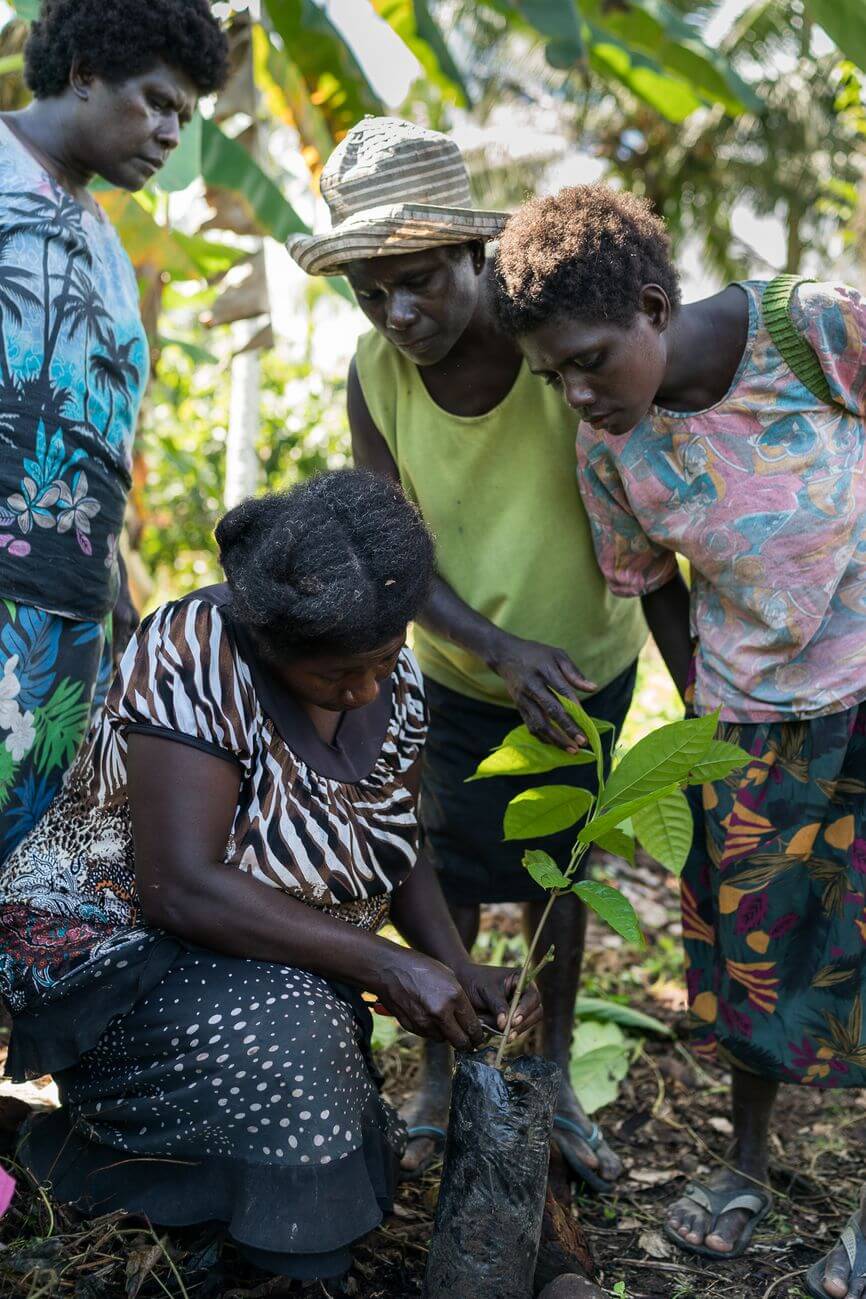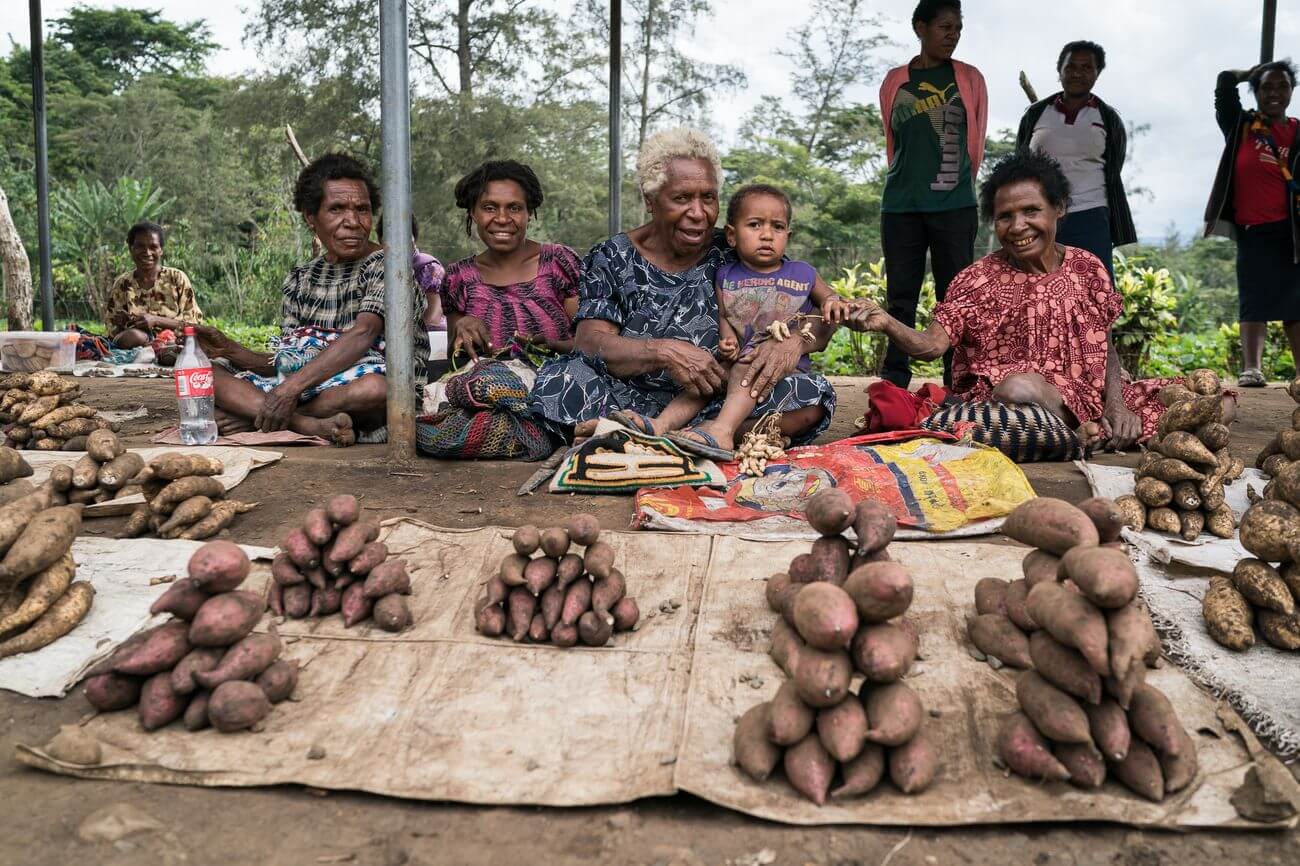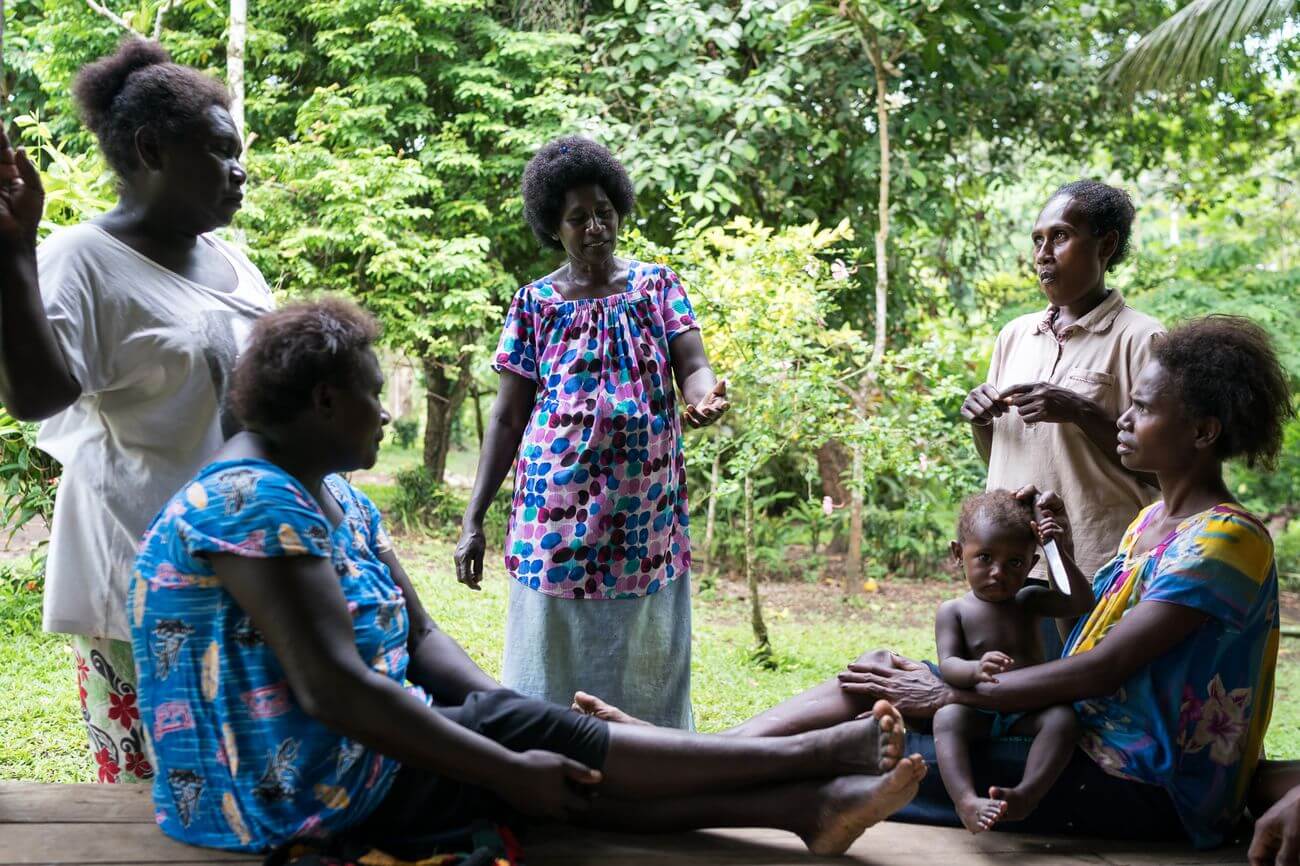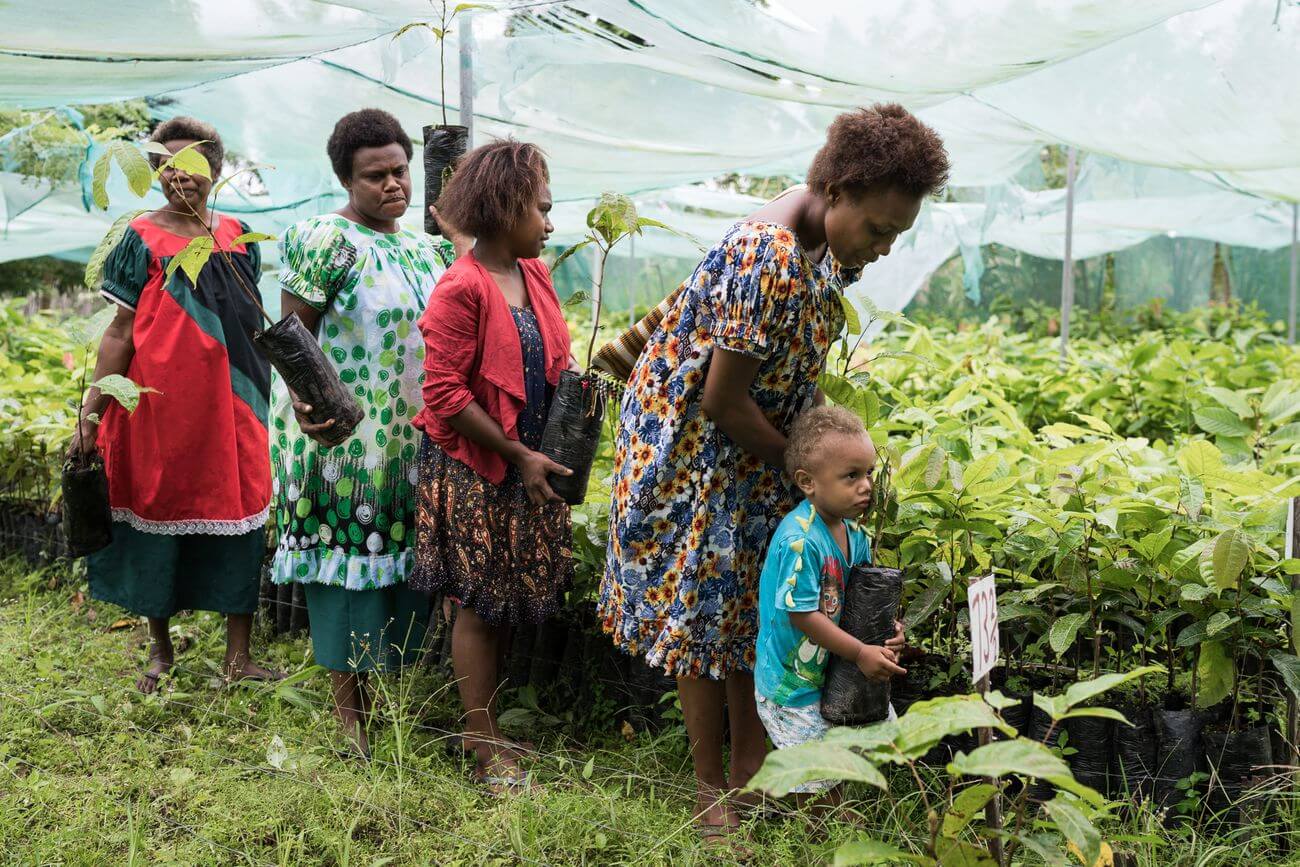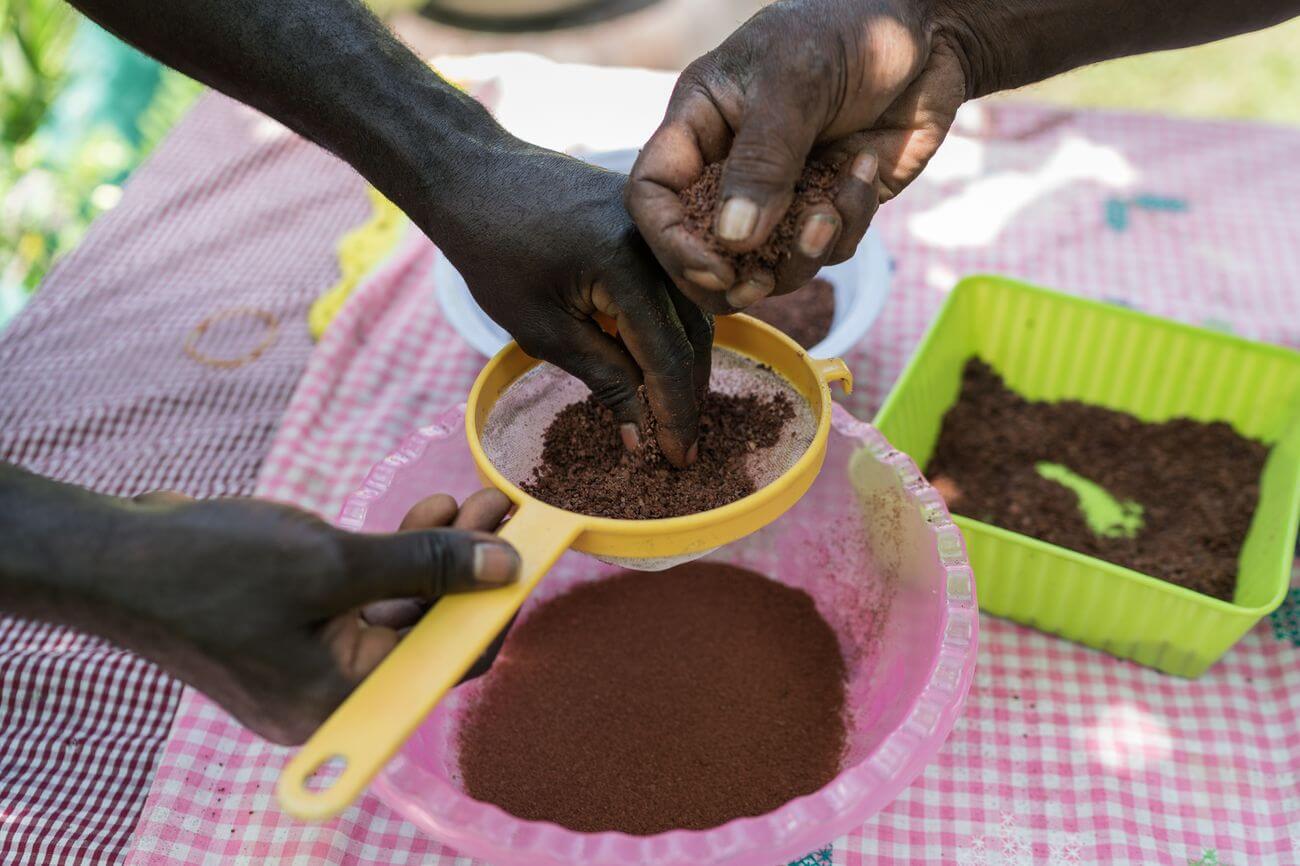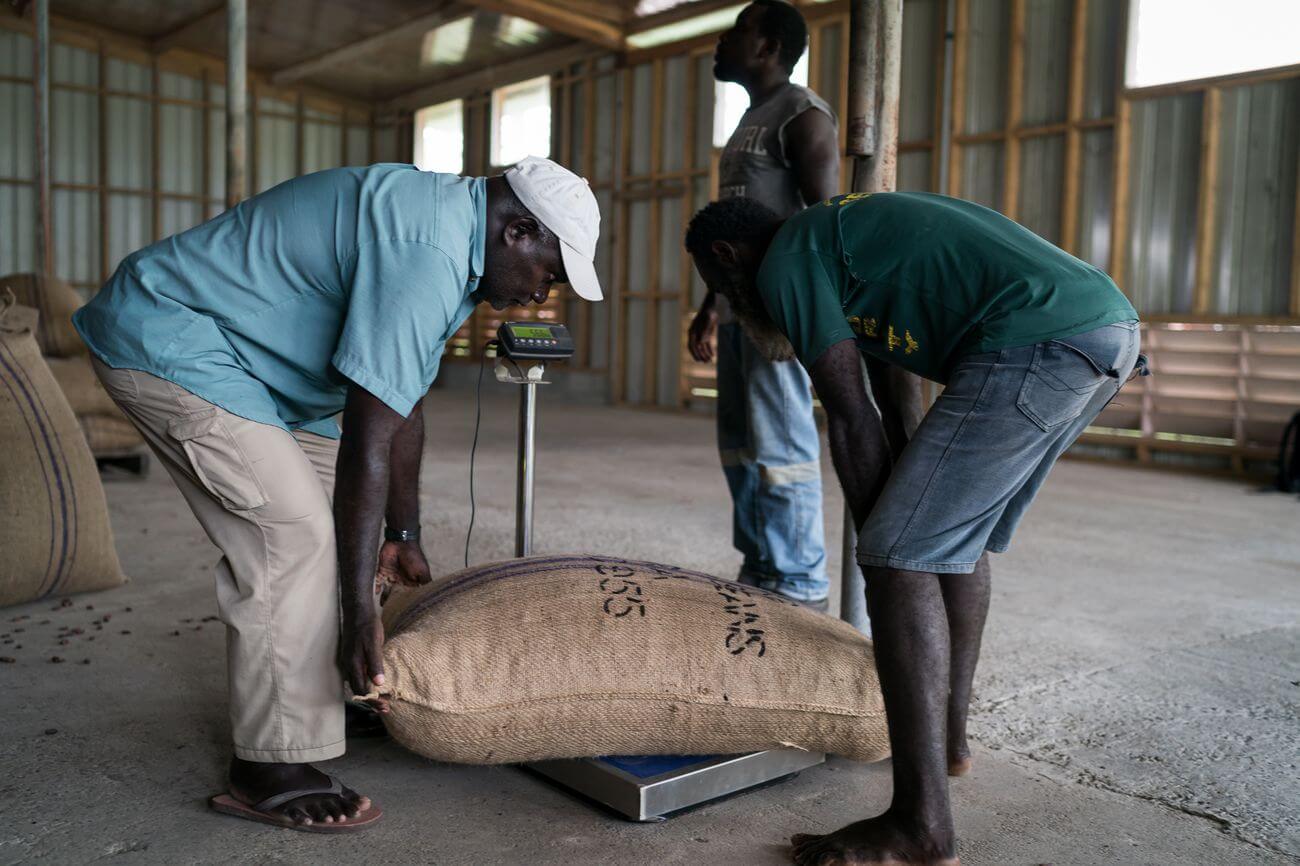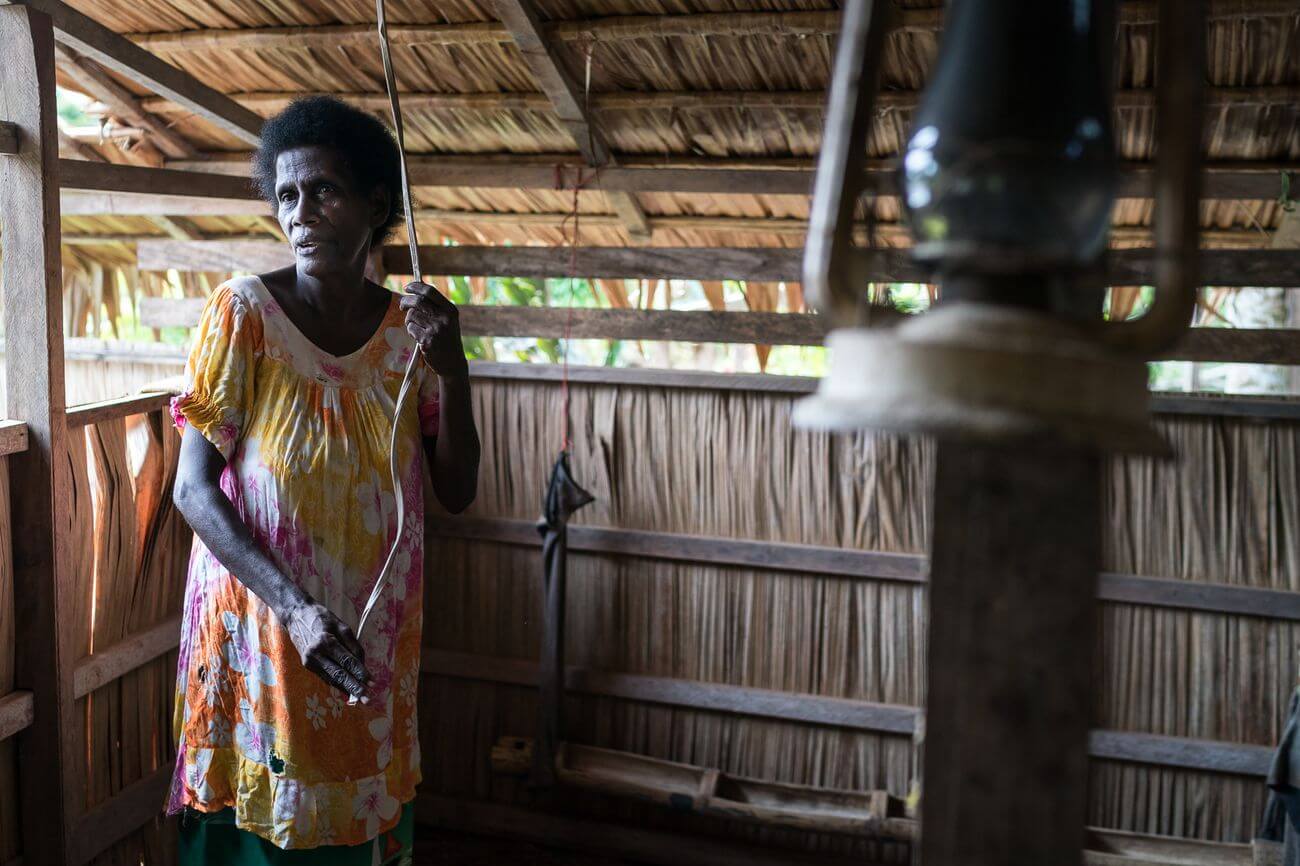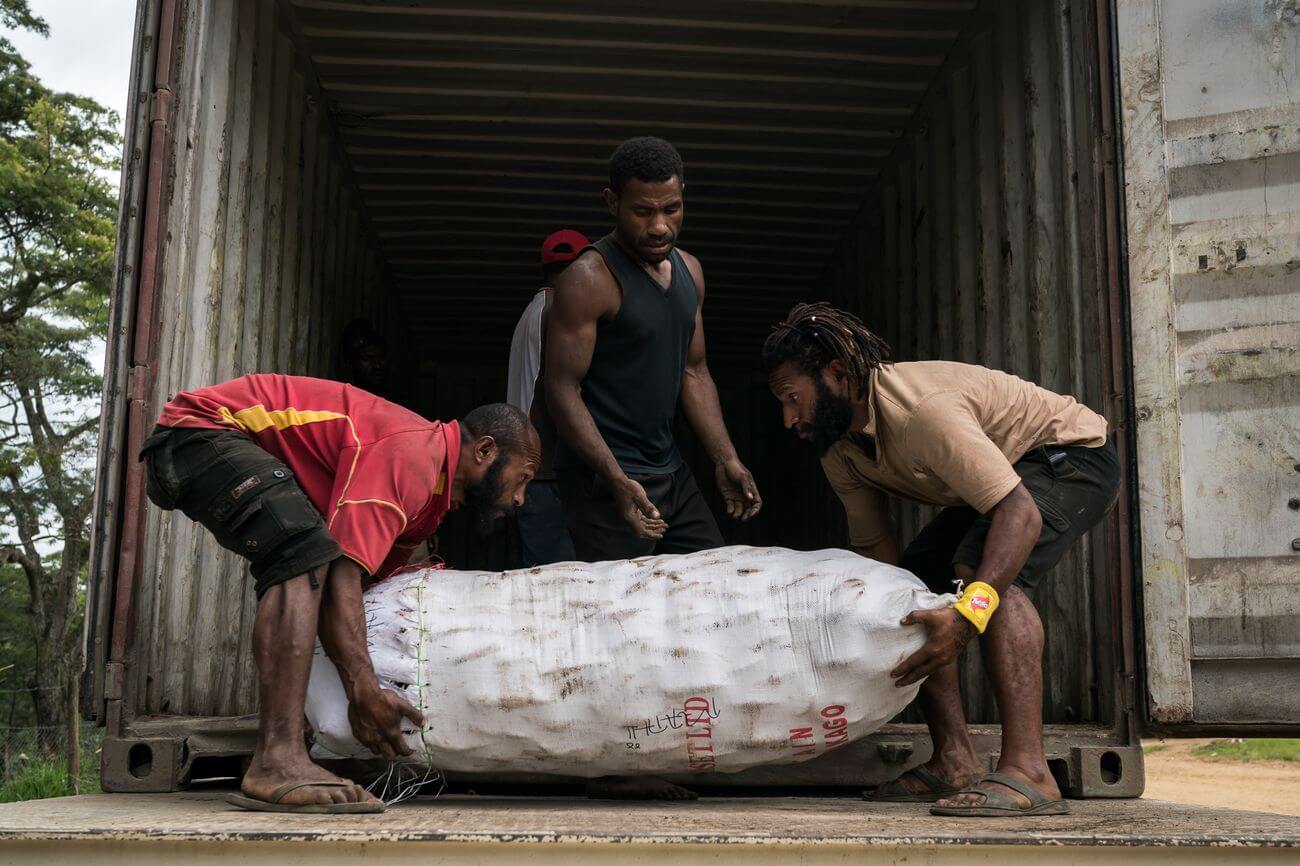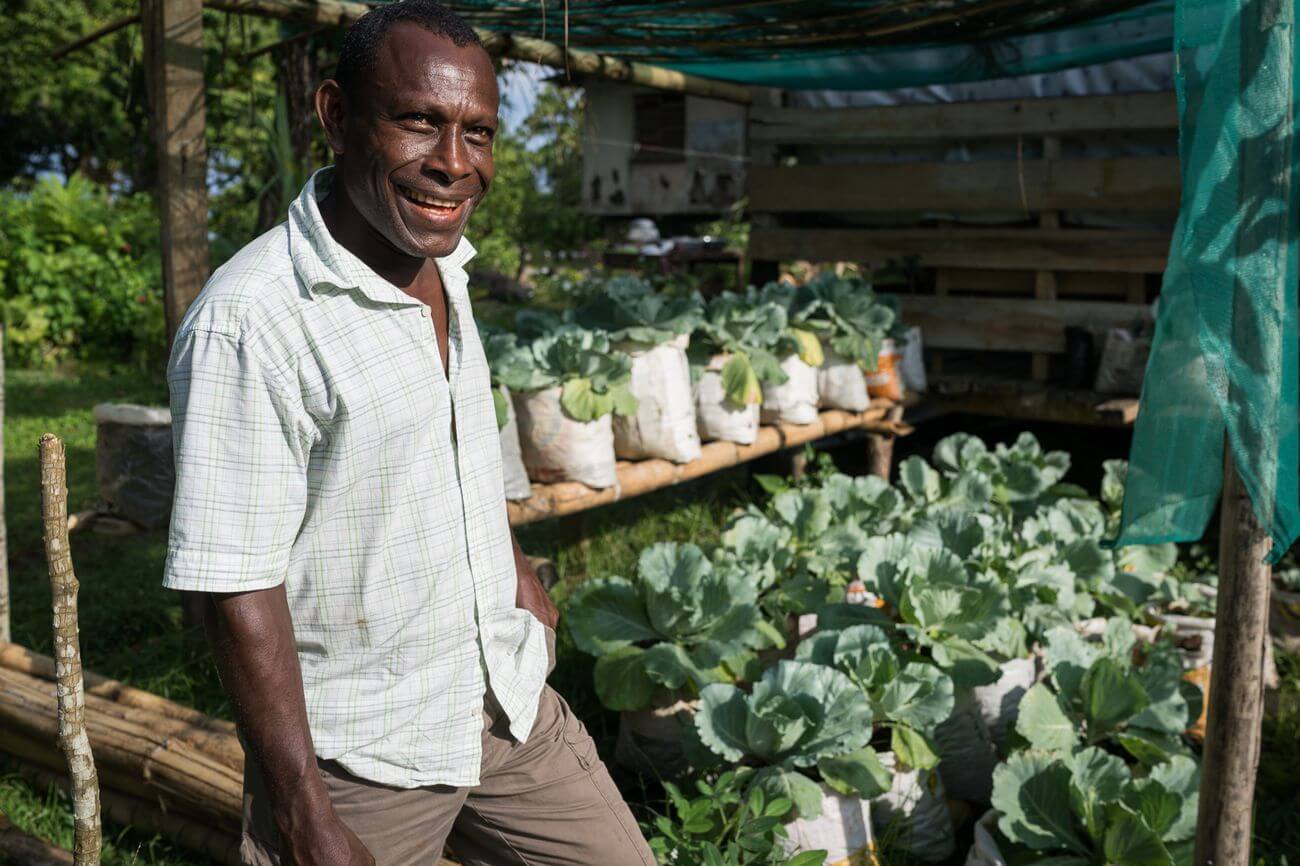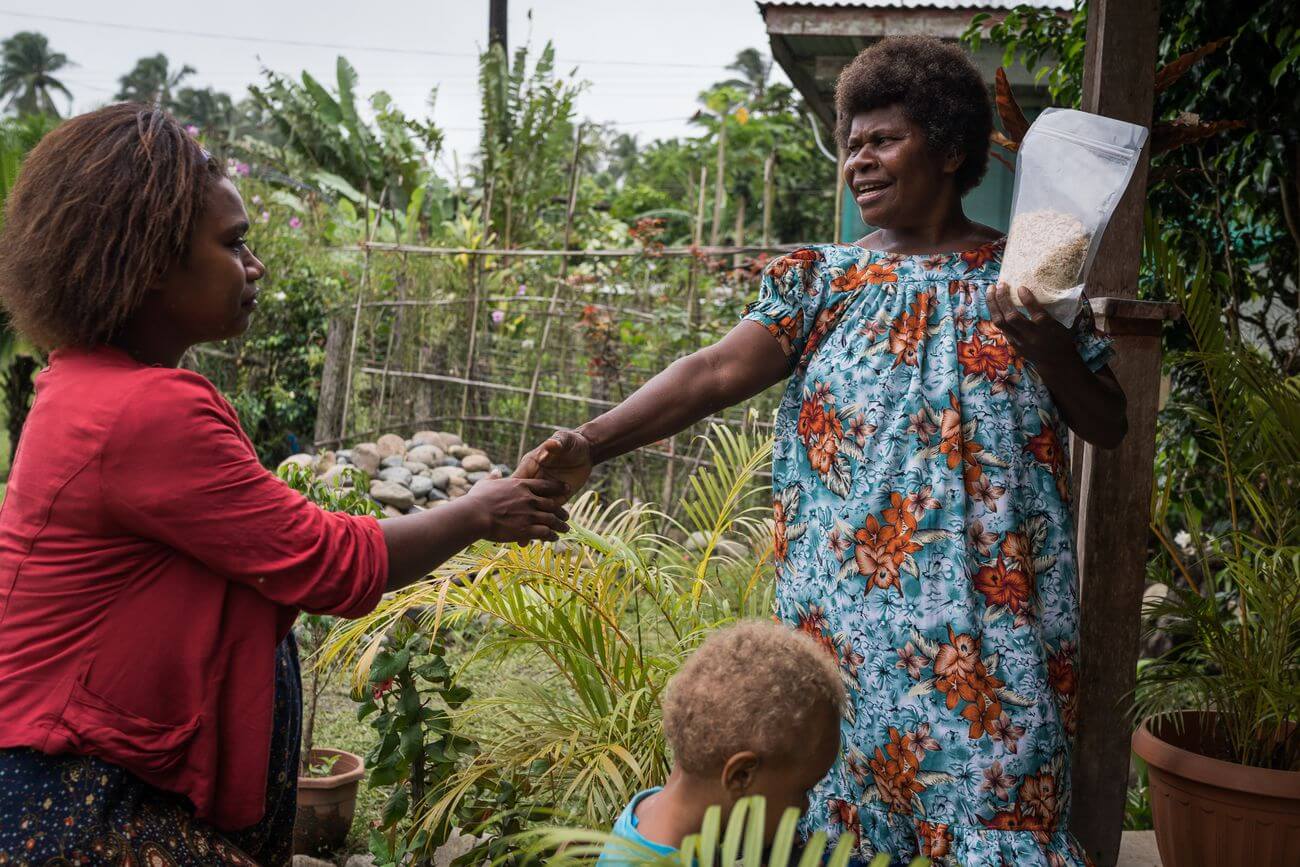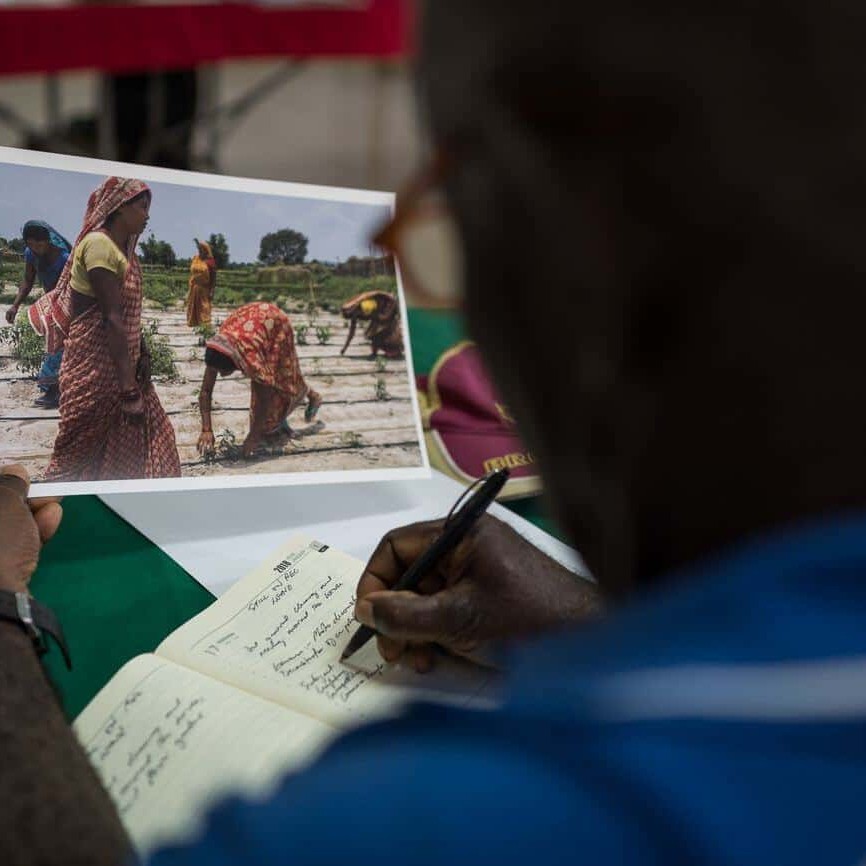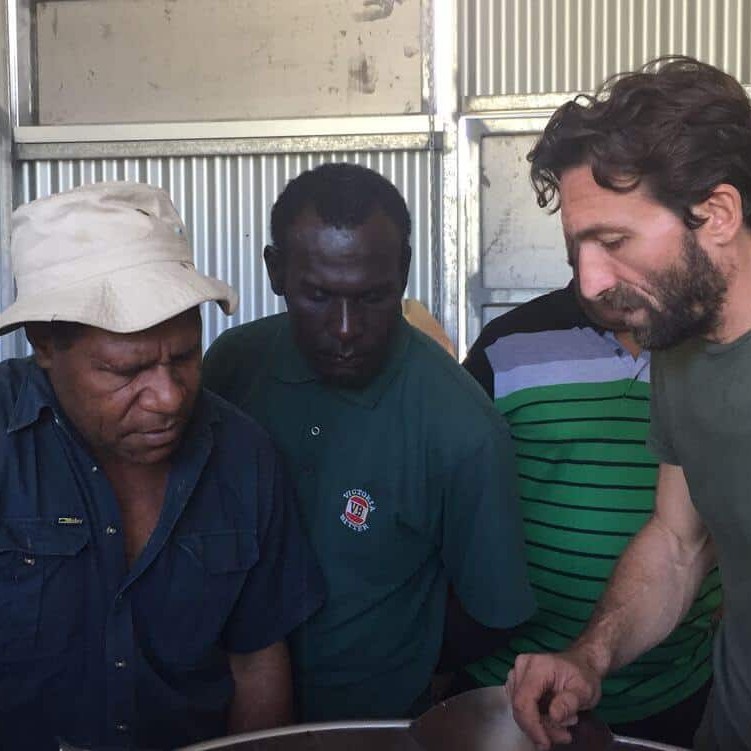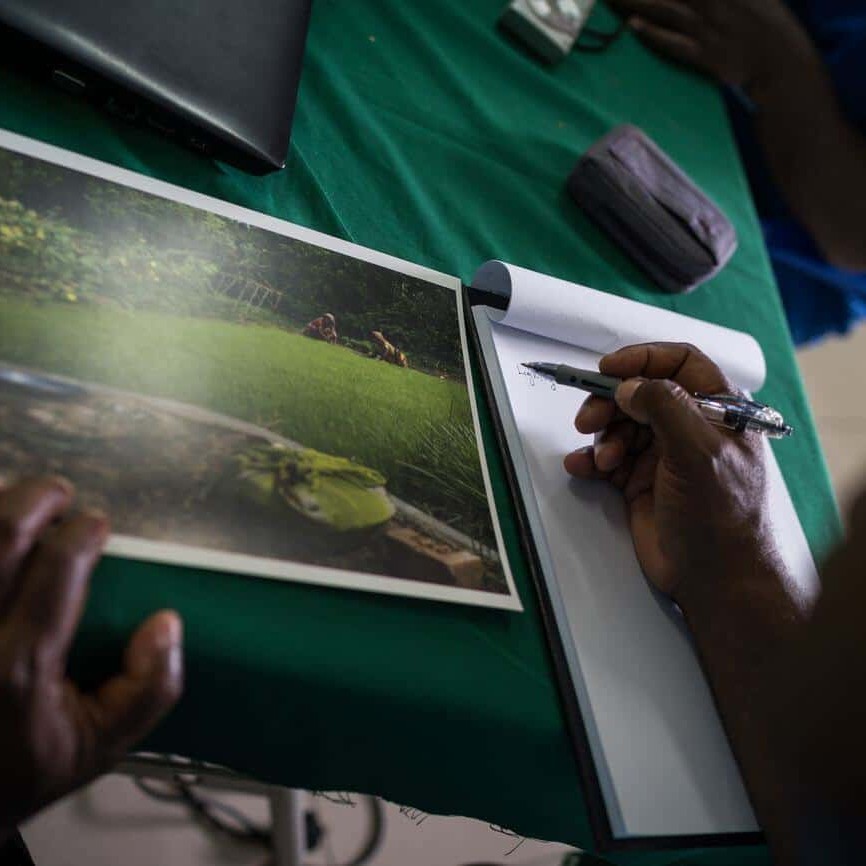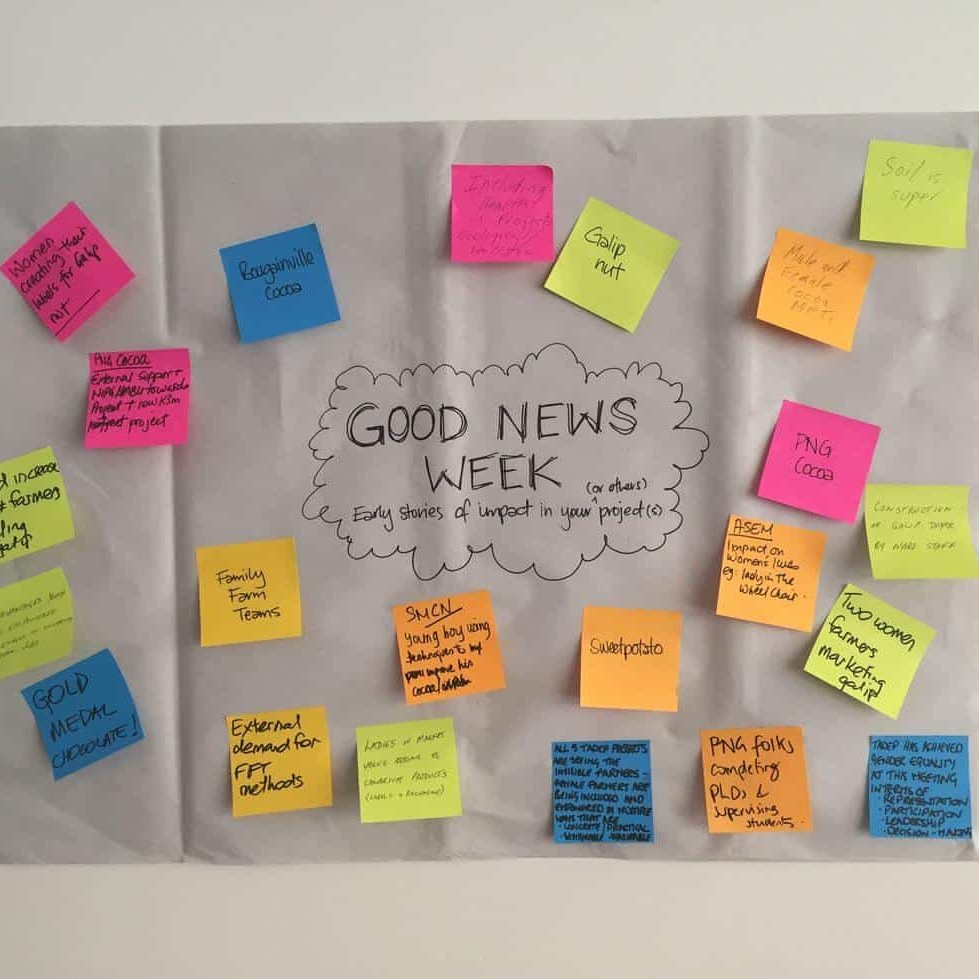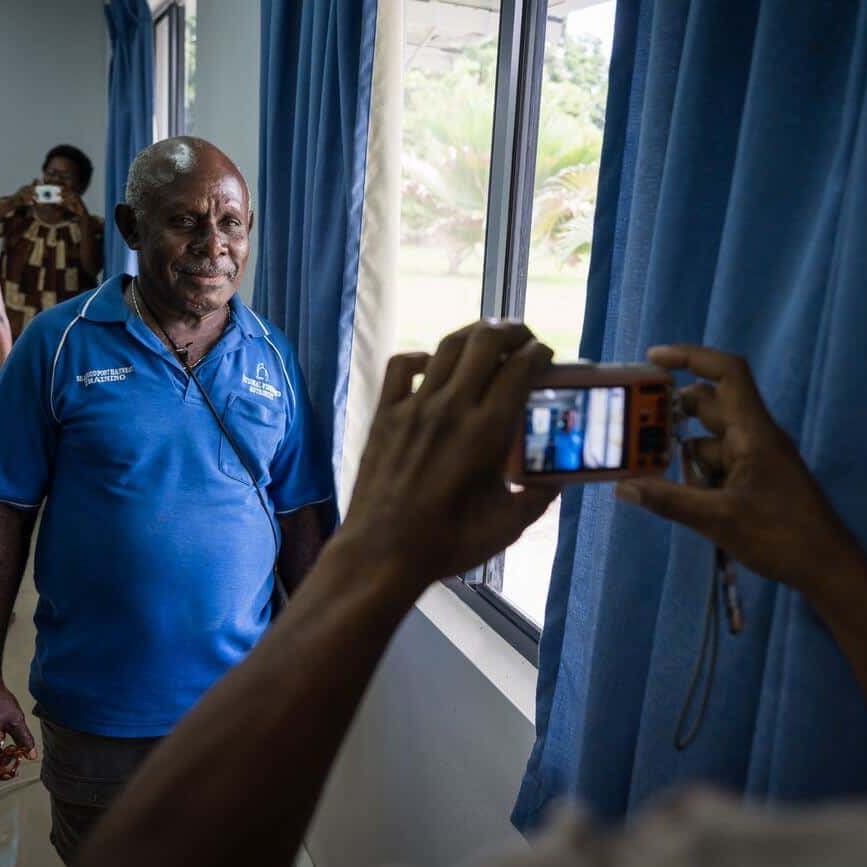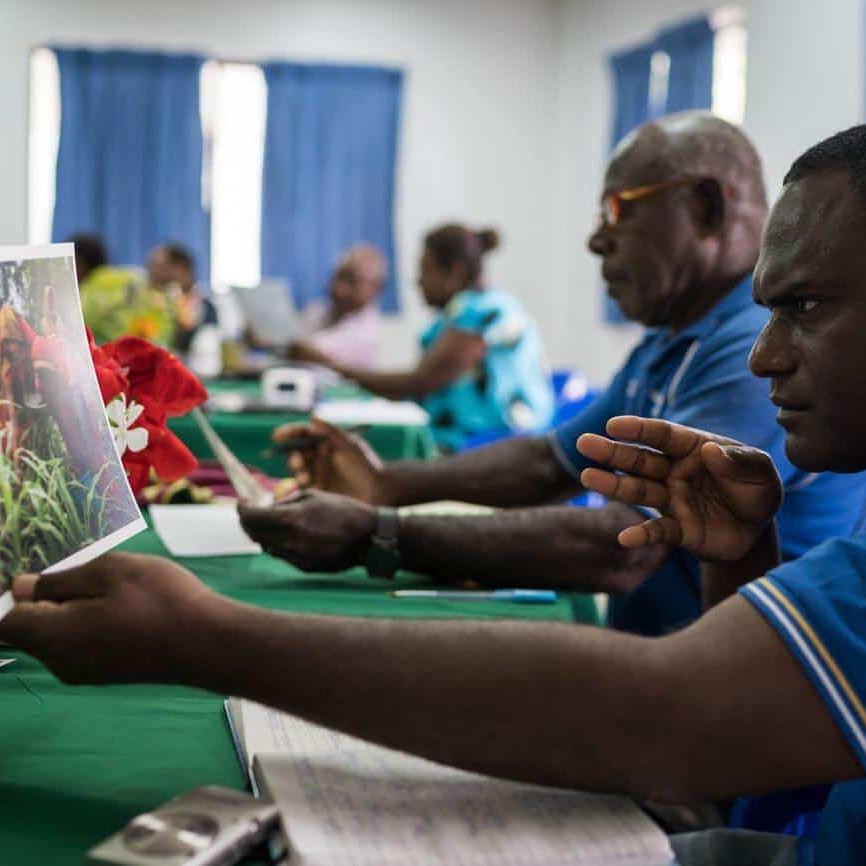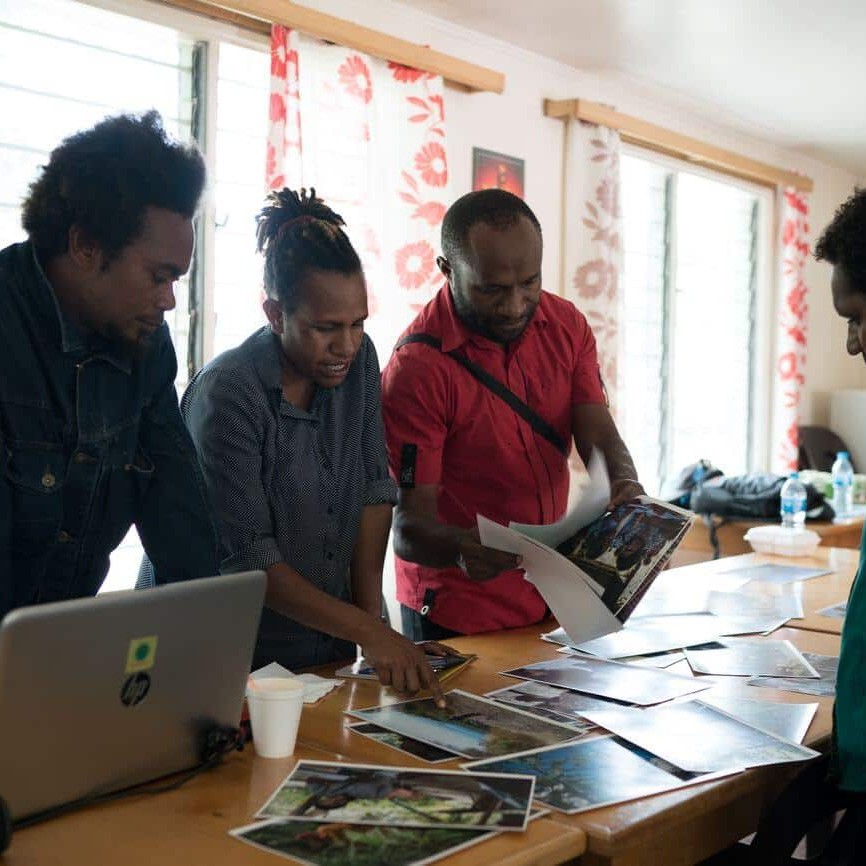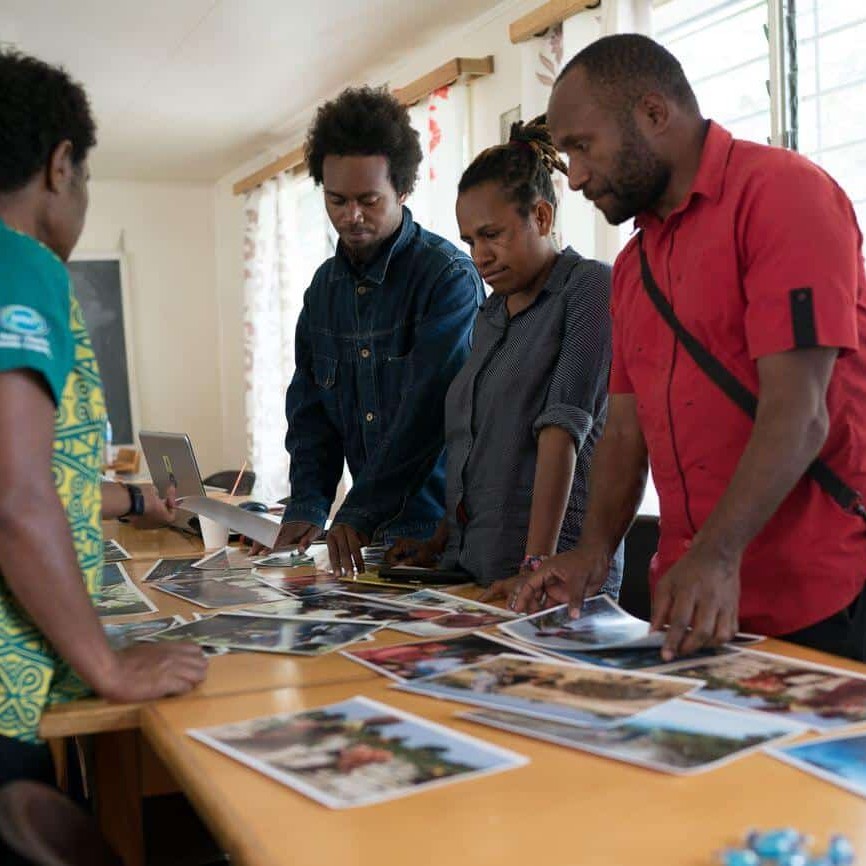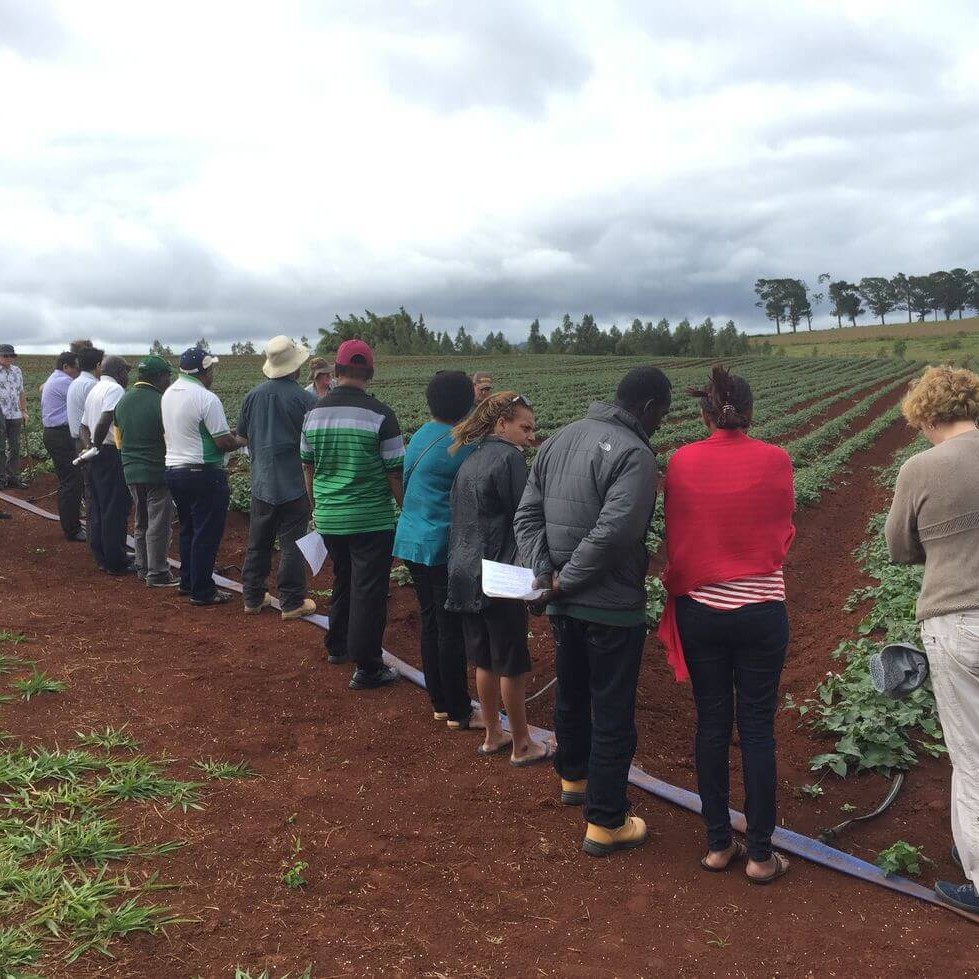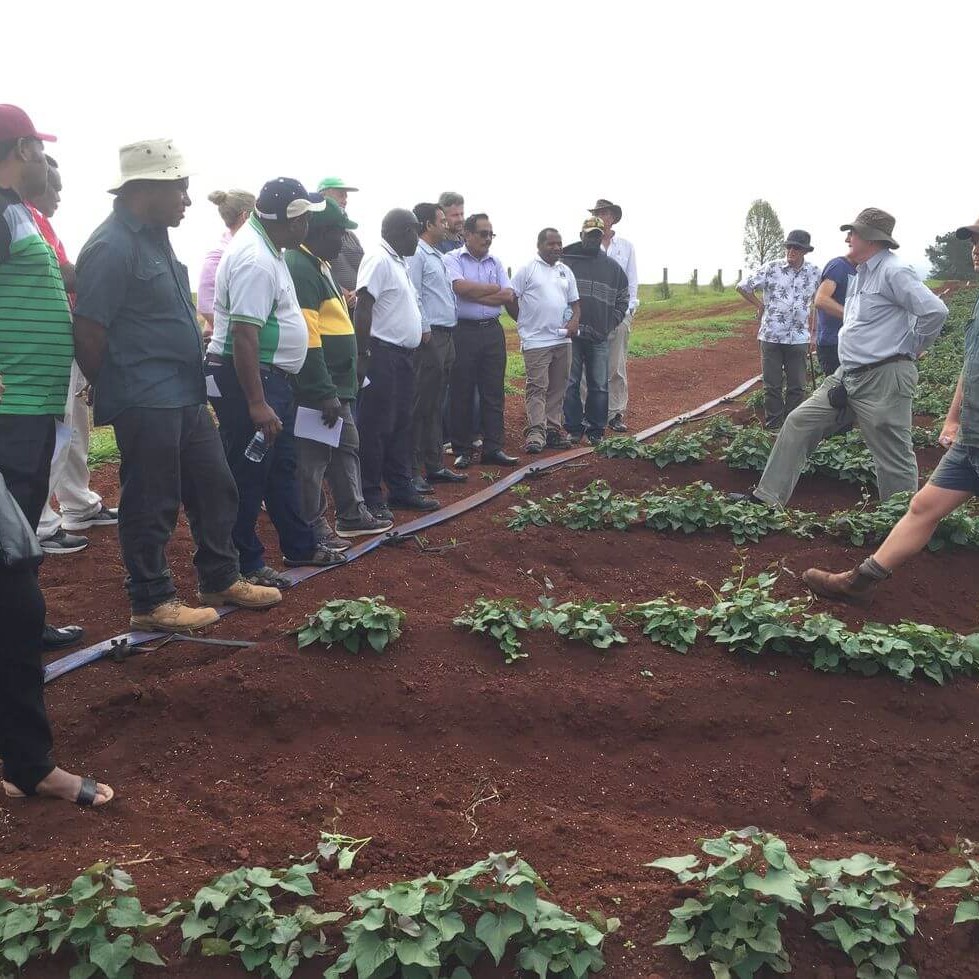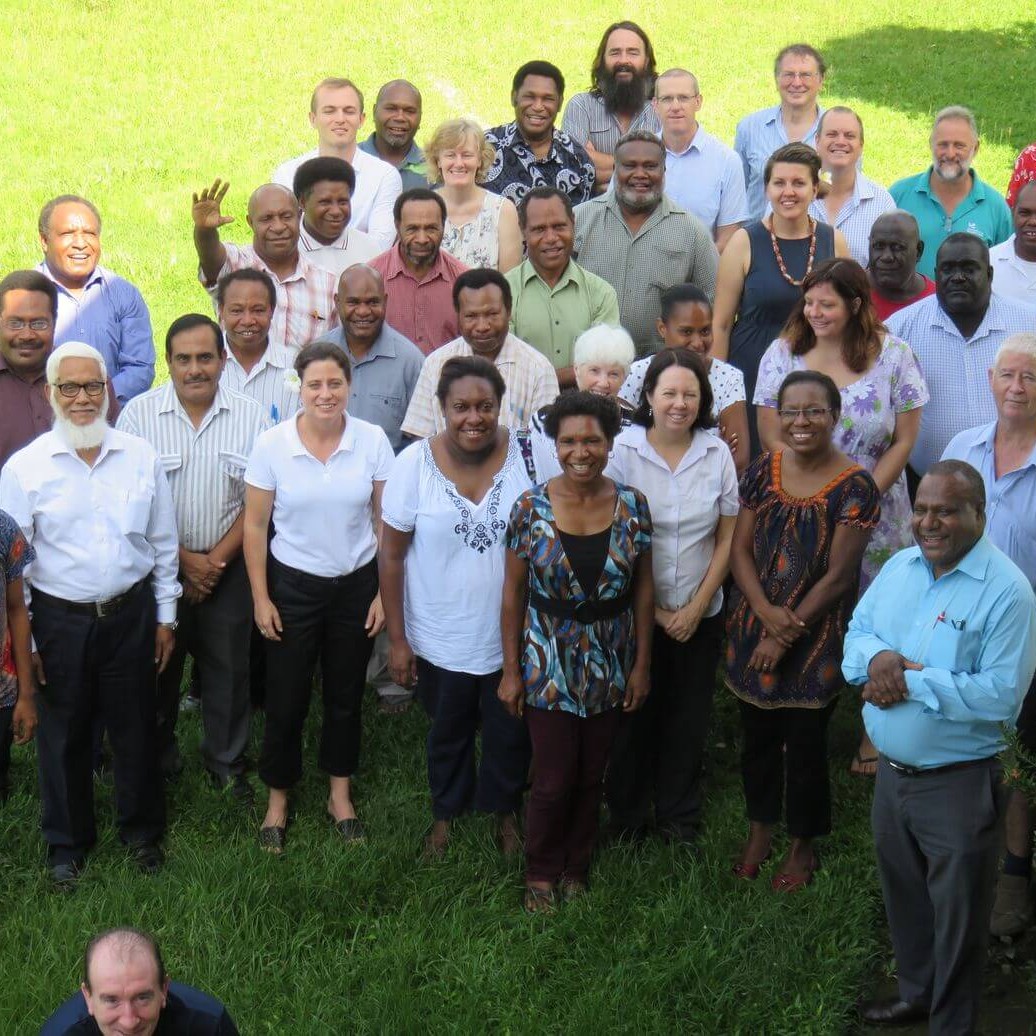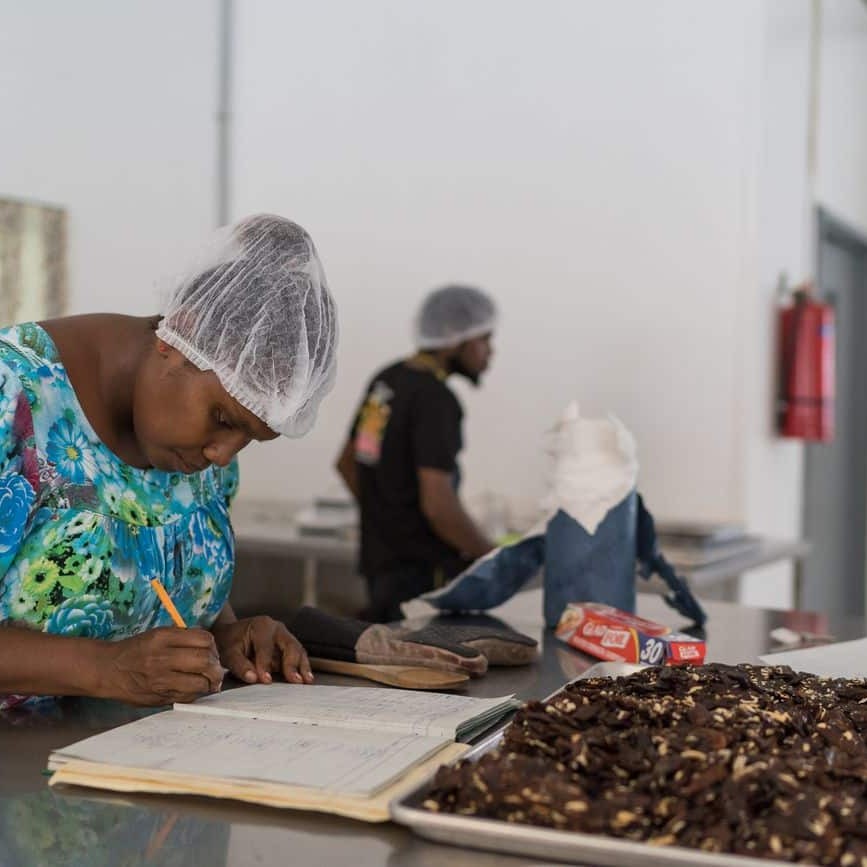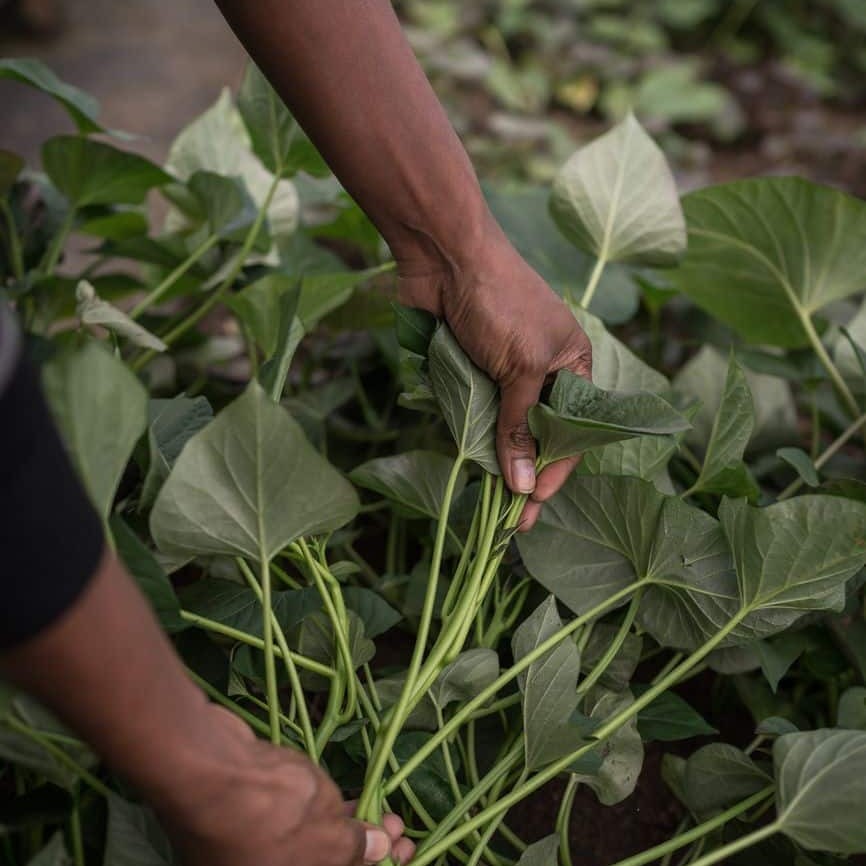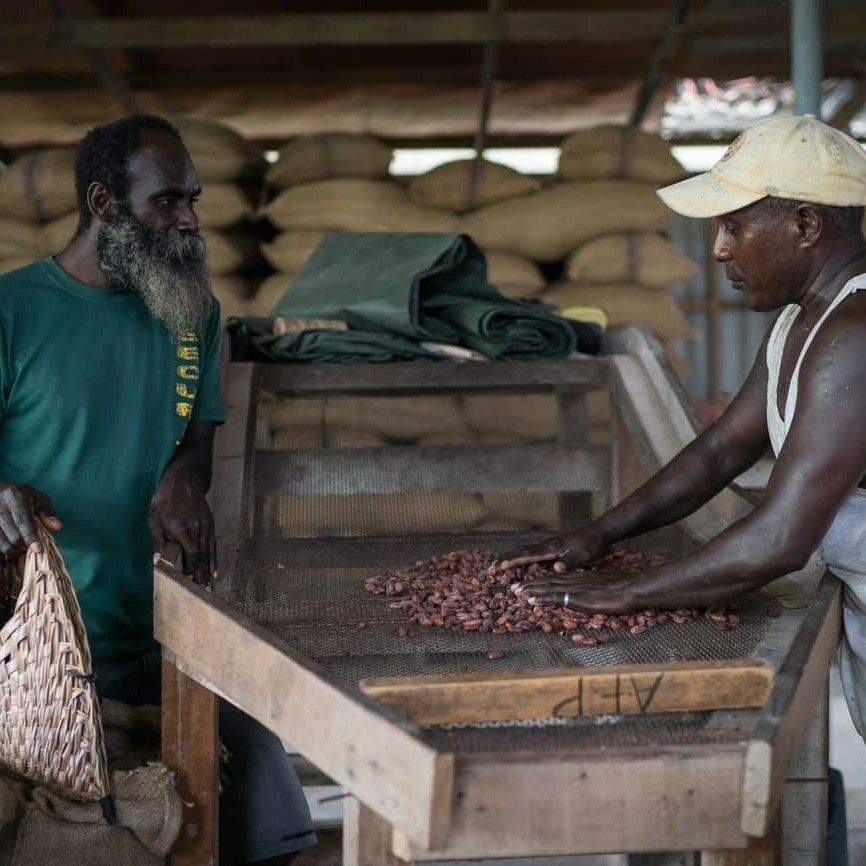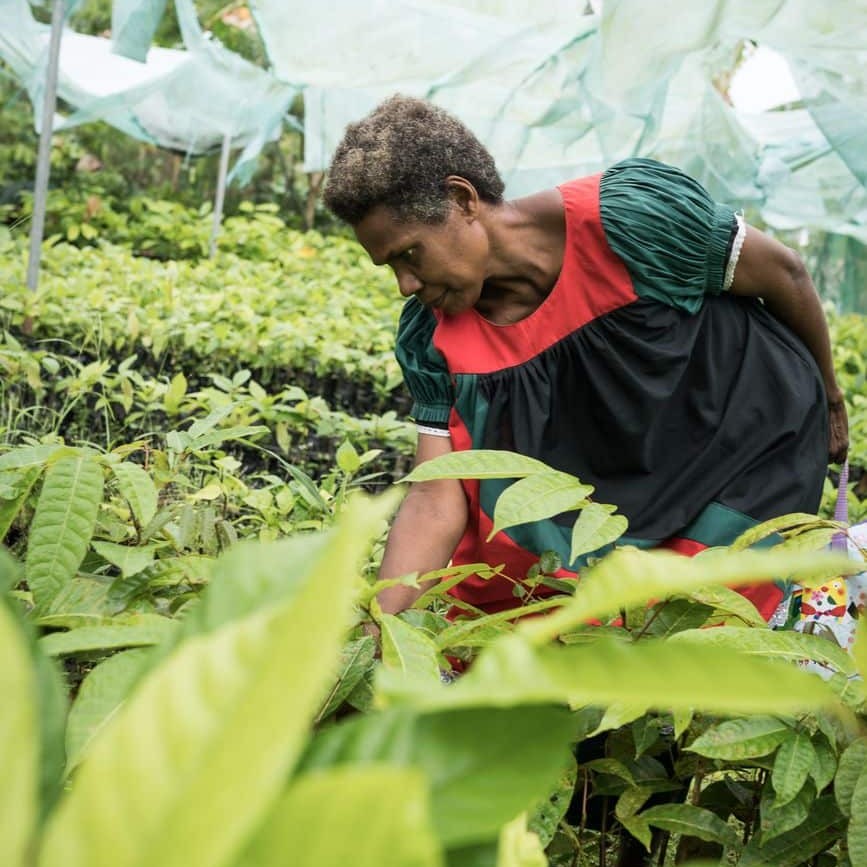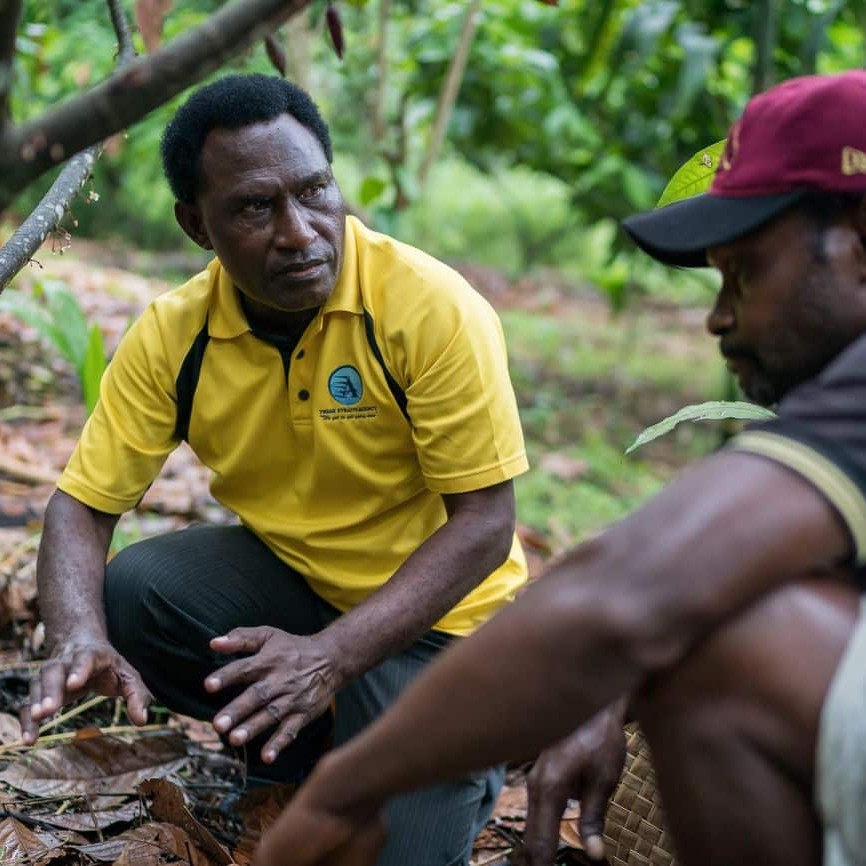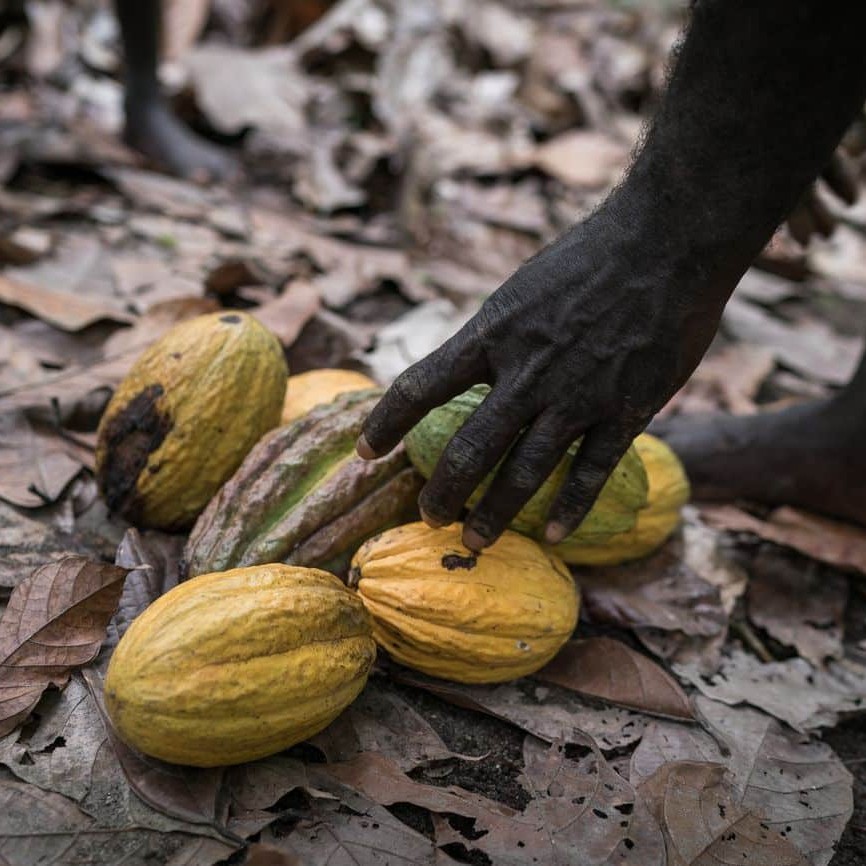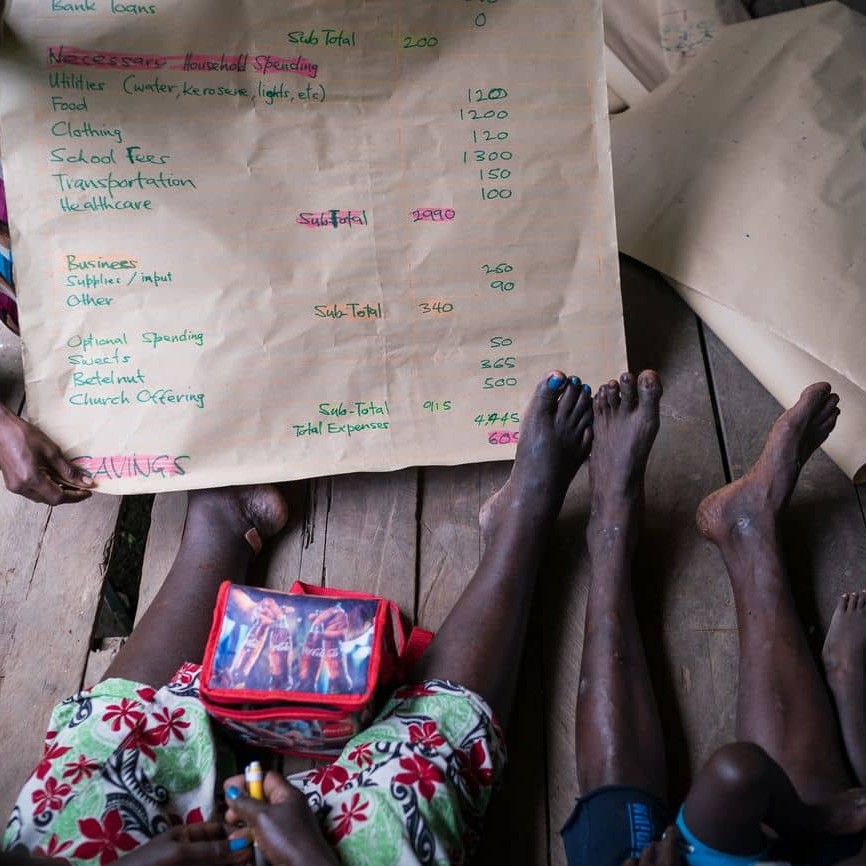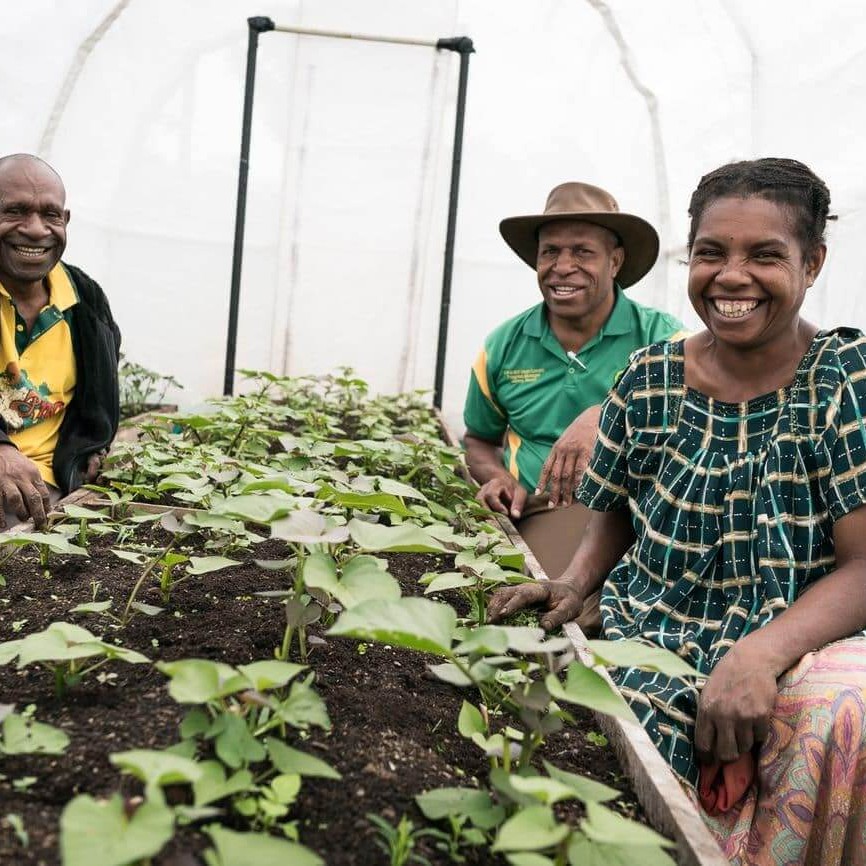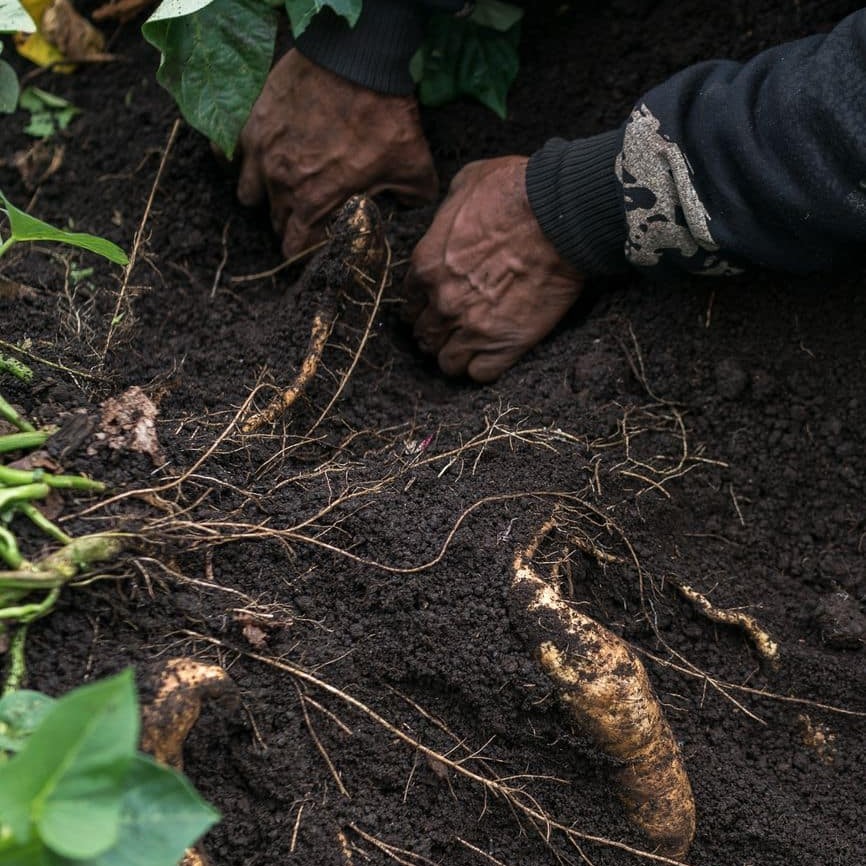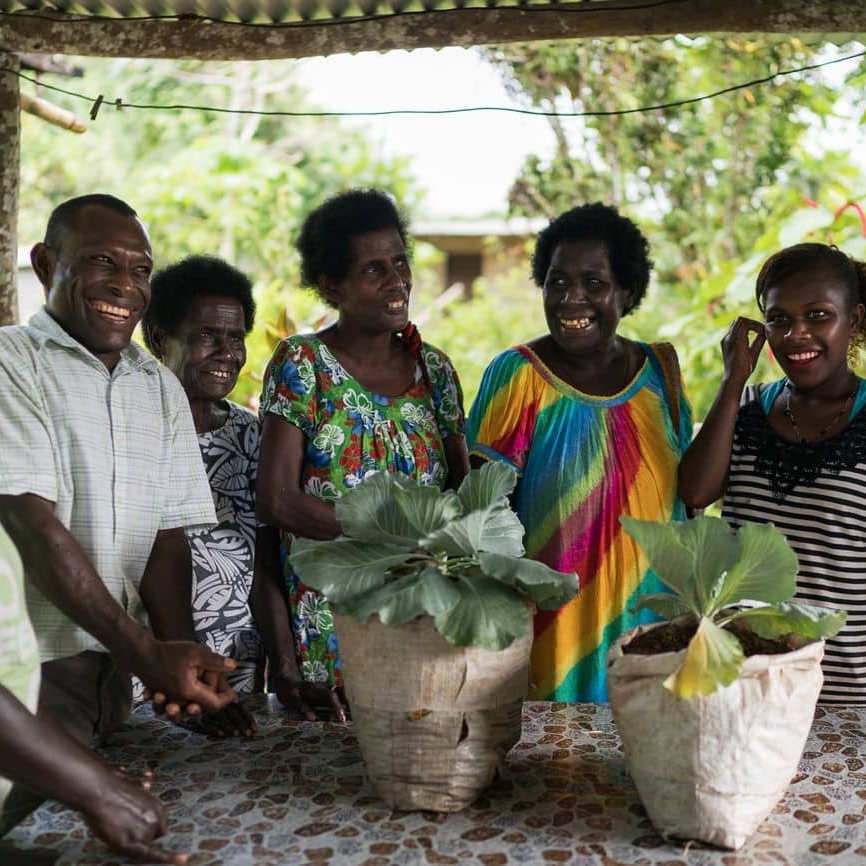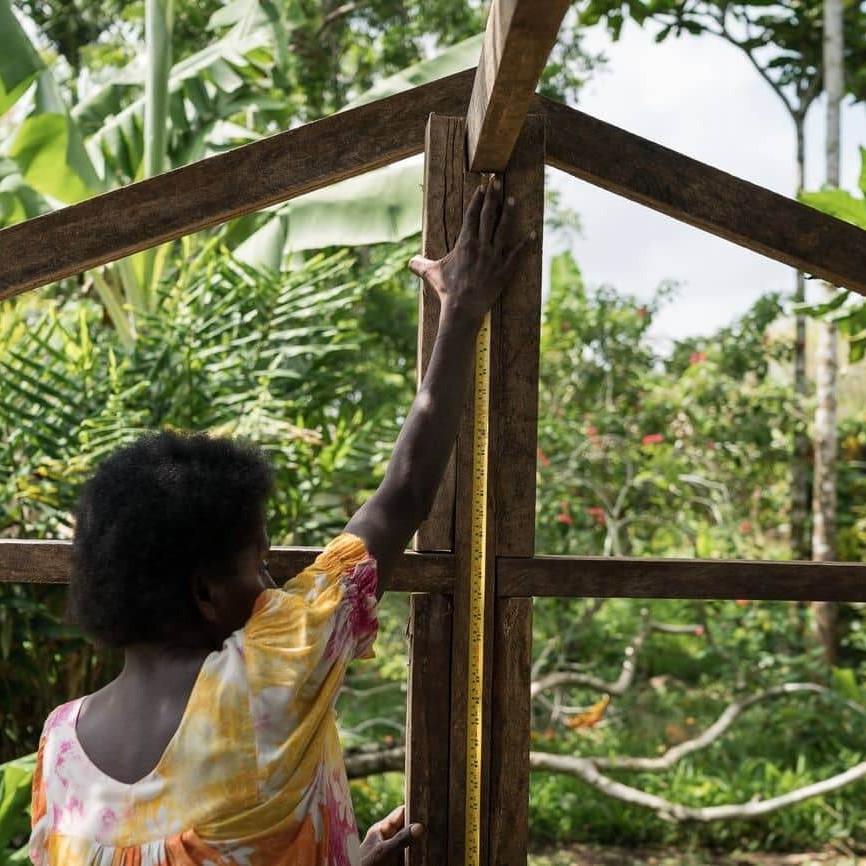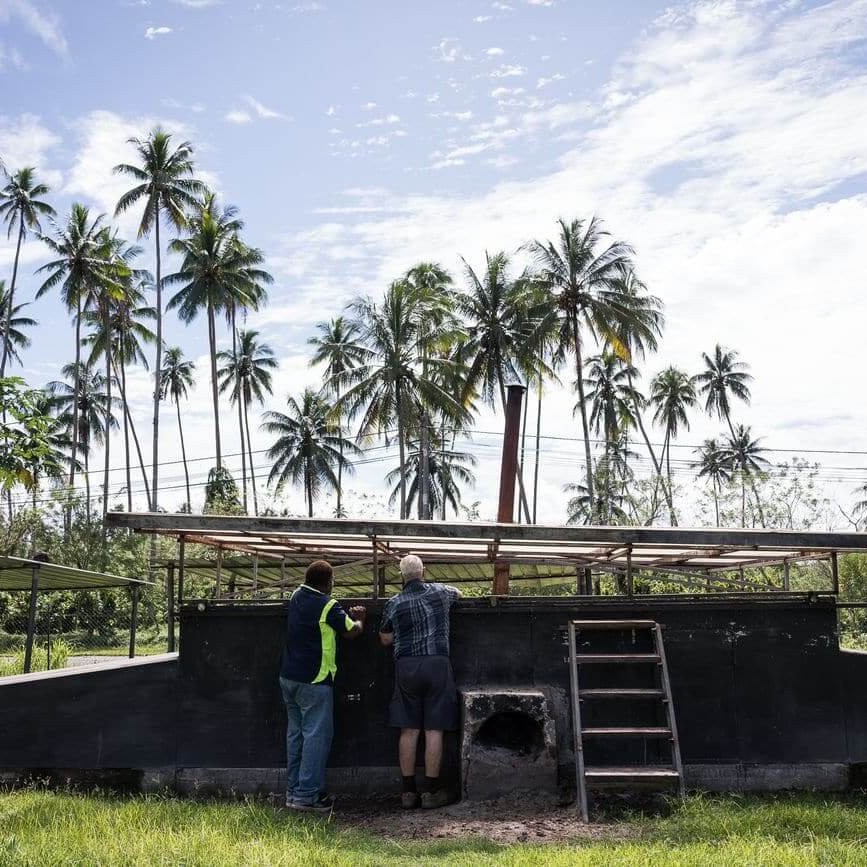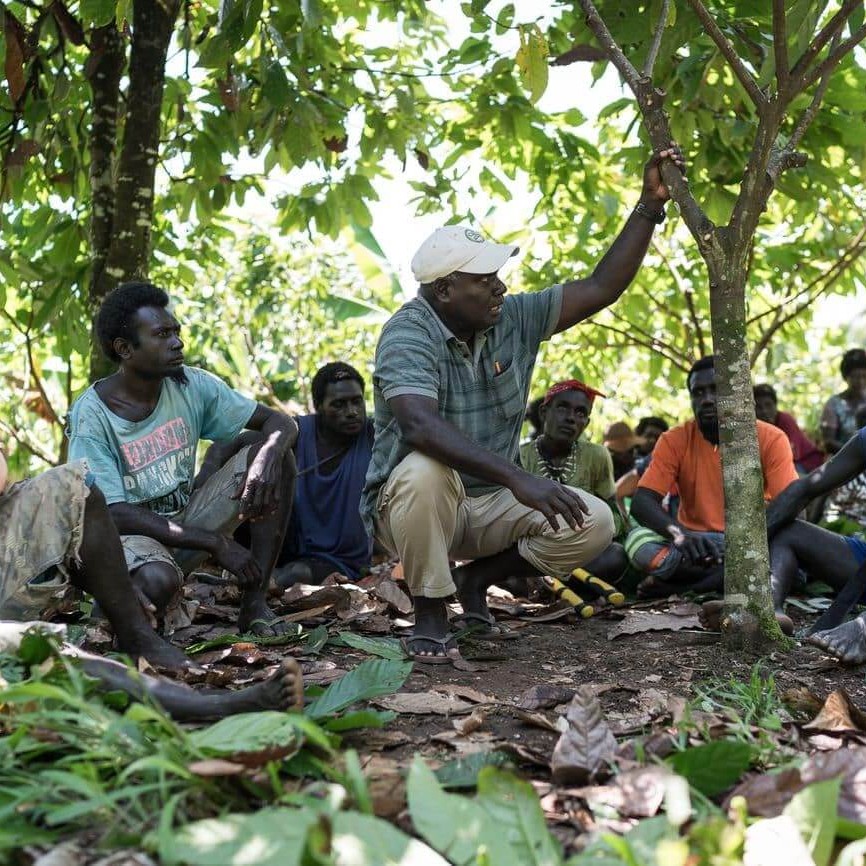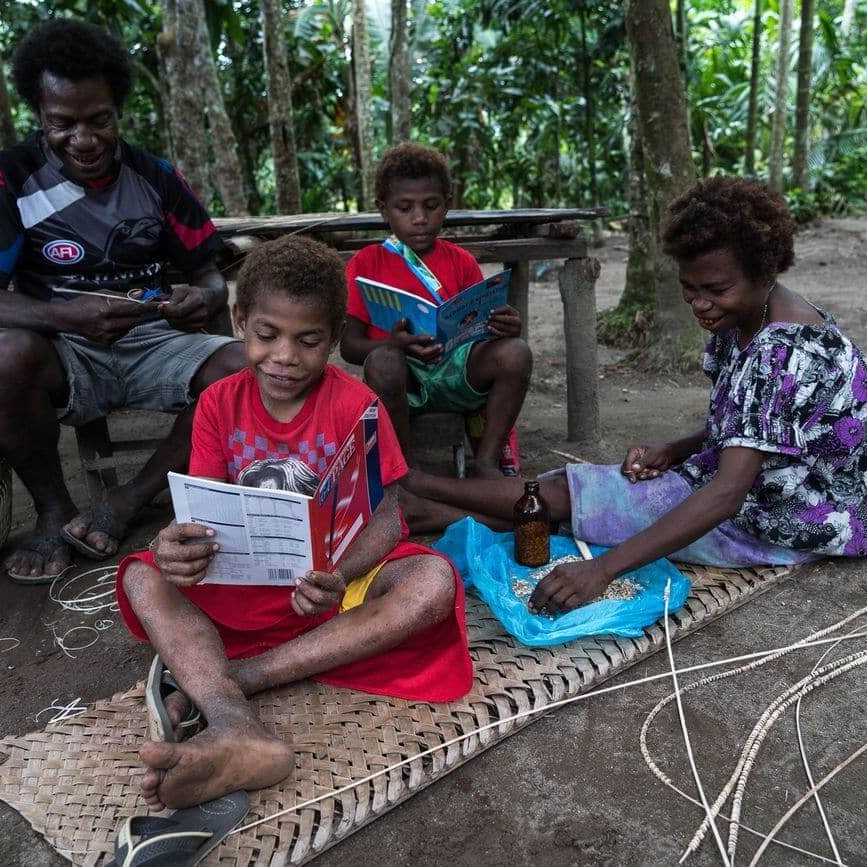The over-arching goal of TADEP is to improve livelihoods of rural men and women in Papua New Guinea A key to the success of this program is a flexible ‘program umbrella’, managed by ACIAR, under which all five component projects sit. The role of the ‘program umbrella’ is to ensure that capacity building, gender equality, and monitoring and evaluation are supported and integrated into the project implementation at every stage.
Each of the five impact-focused research for development projects are addressing the higher-level program goals:
- To stimulate and strengthen inclusive private sector-led development in agriculture
- To sustainably increase agricultural productivity, quality and value
- To improve access to markets and strengthen value chains
- To promote gender equity and women's empowerment in rural communities
- To build individual and institutional capacity
Women farmers not only play a significant role in the agricultural industry in PNG but are also key to PNG family livelihoods. The role is often concentrated in early stages of production and they rarely participate in marketing and financial decision making. In addition, women often significant constraints that further gender inequity such as including low literacy, limited access to resources, limited access to finance, lack of understanding and access to markets, primary responsibility and burden for household labour, restrictions to mobility, and overall safety issues. Earlier ACIAR research has shown that to promote gender equity and increase women’s economic empowerment, an understanding of the different roles and input of women and men along the value chain and appropriate training needs to be embedded in the family and community.
In line with the increased emphasis on gender and youth in both Australian and PNG government policies, and because of the experience in many commodity projects of male-dominated farmers groups, new skills are needed to engage with men, women and youth in communities, to support and build their contribution to their families and their community. One of the five TADEP projects focuses specifically on empowering women and rural families to engage in a range of agriculture based economic activities and acts as a source of ideas and approaches for the other projects.
Enterprise development will be key for the research impacts of the projects and program to sustainably improve rural livelihoods in PNG. Whilst it is understood that close involvement of the private sector is critical to improving farmers͛ access to and understanding of markets, the process for private sector engagement can seem complex and is often foreign to traditional research projects. Understanding the motivations of the private sector to invest in a project and involving them early on the project helps manage expectations, create trust and foster positive working relationships.
Each of the five TADEP projects have engaged with the private sector at varying capacities and this will continue to be a focus for each of the project teams.
The success of TADEP as a program will be judged in part by (i) the extent to which it delivers value beyond the sum of the component projects and (ii) the extent to which the projects contribute to the overall TADEP program goals.
To oversee these functions as well as provide program-level logistics and communications, a part-time program coordinator was recruited. The program coordinator has, in particular, led the development and implementation of a coherent program logic, performance framework and communications plan, drawing together the projects into a common understanding of the program objectives, performance indicators and their contributions to these. The performance framework is referenced below. It has been developed in consultation with DFAT, ACIAR and key program stakeholders and will continue to be an adaptive document as the program progresses and evolves.


